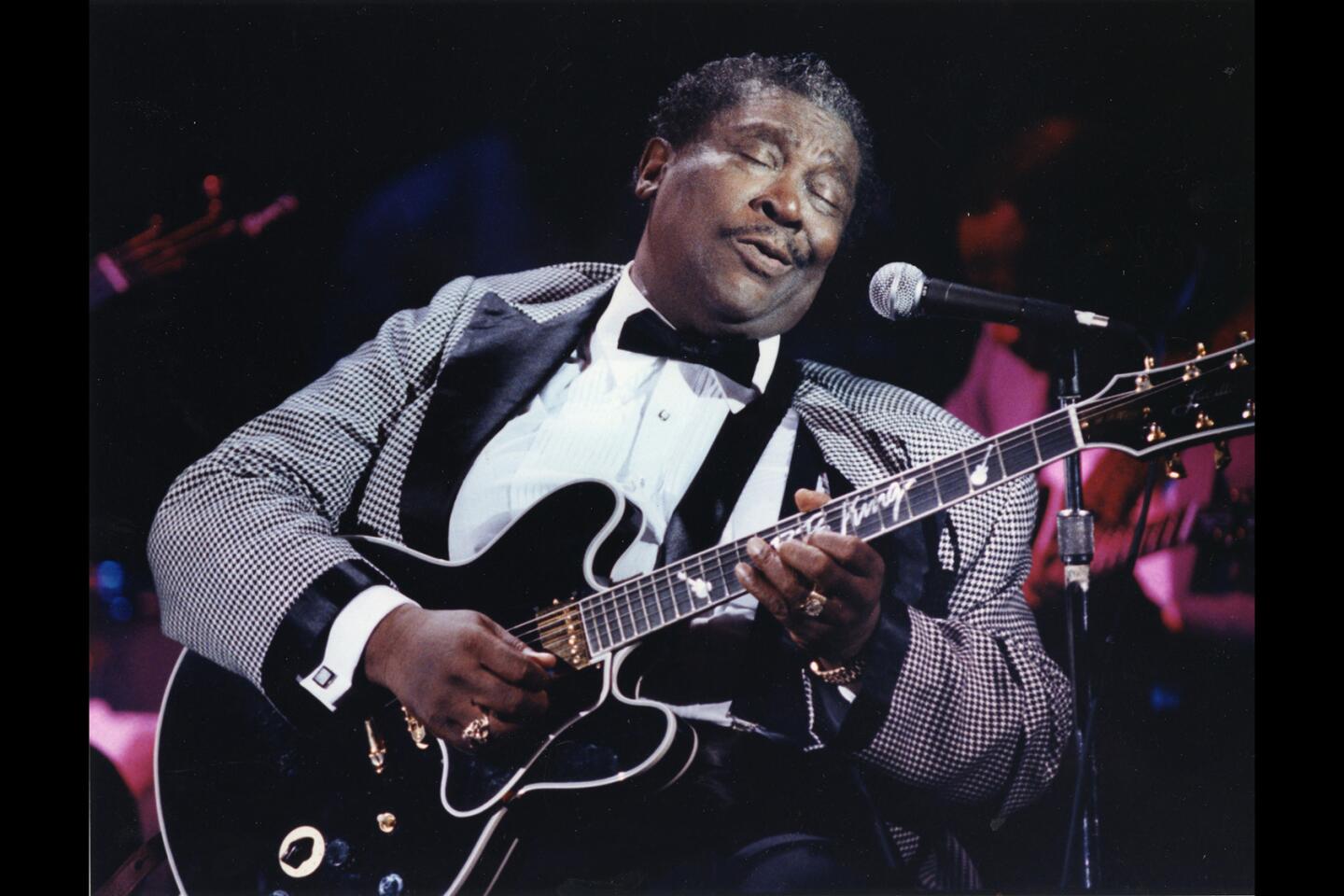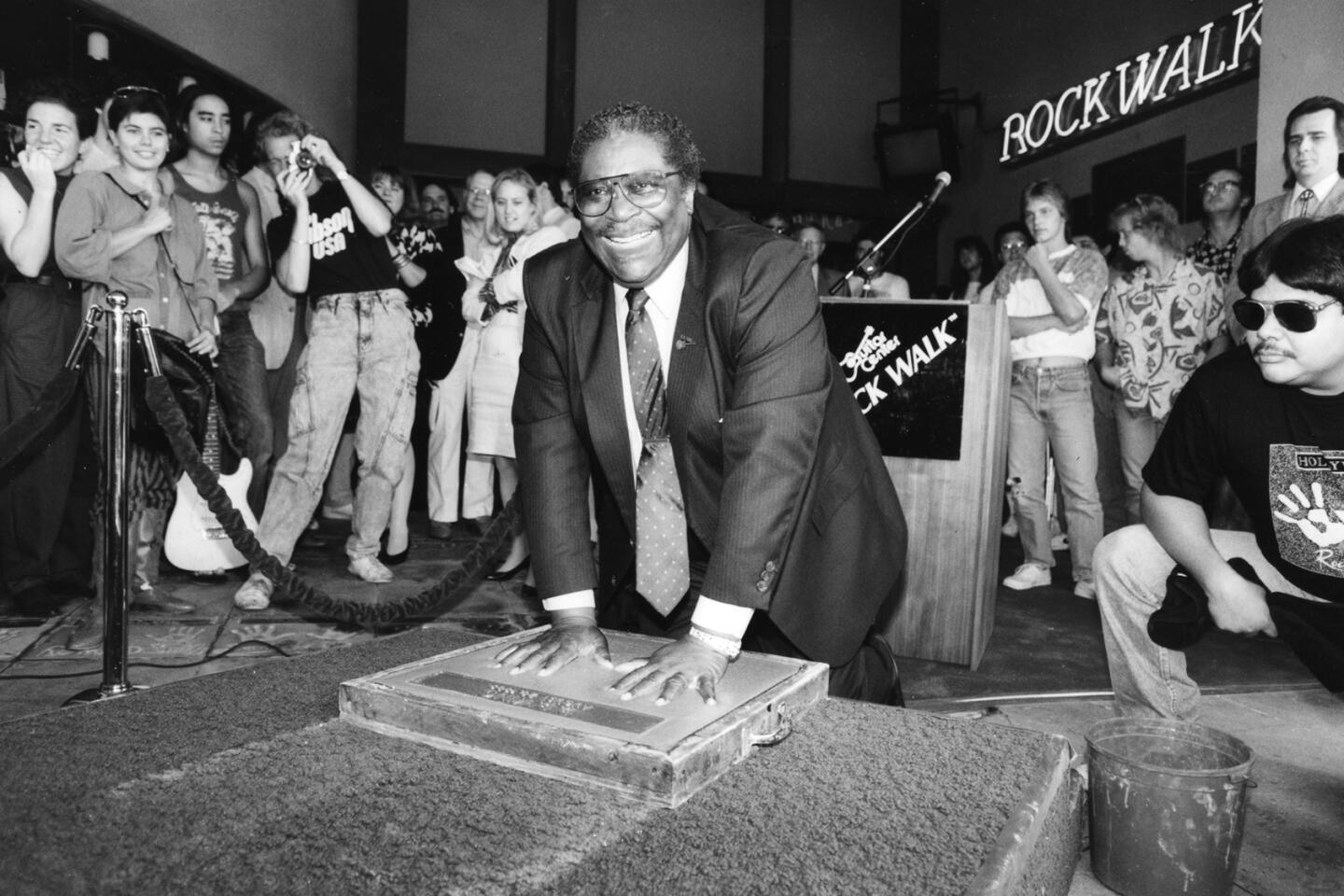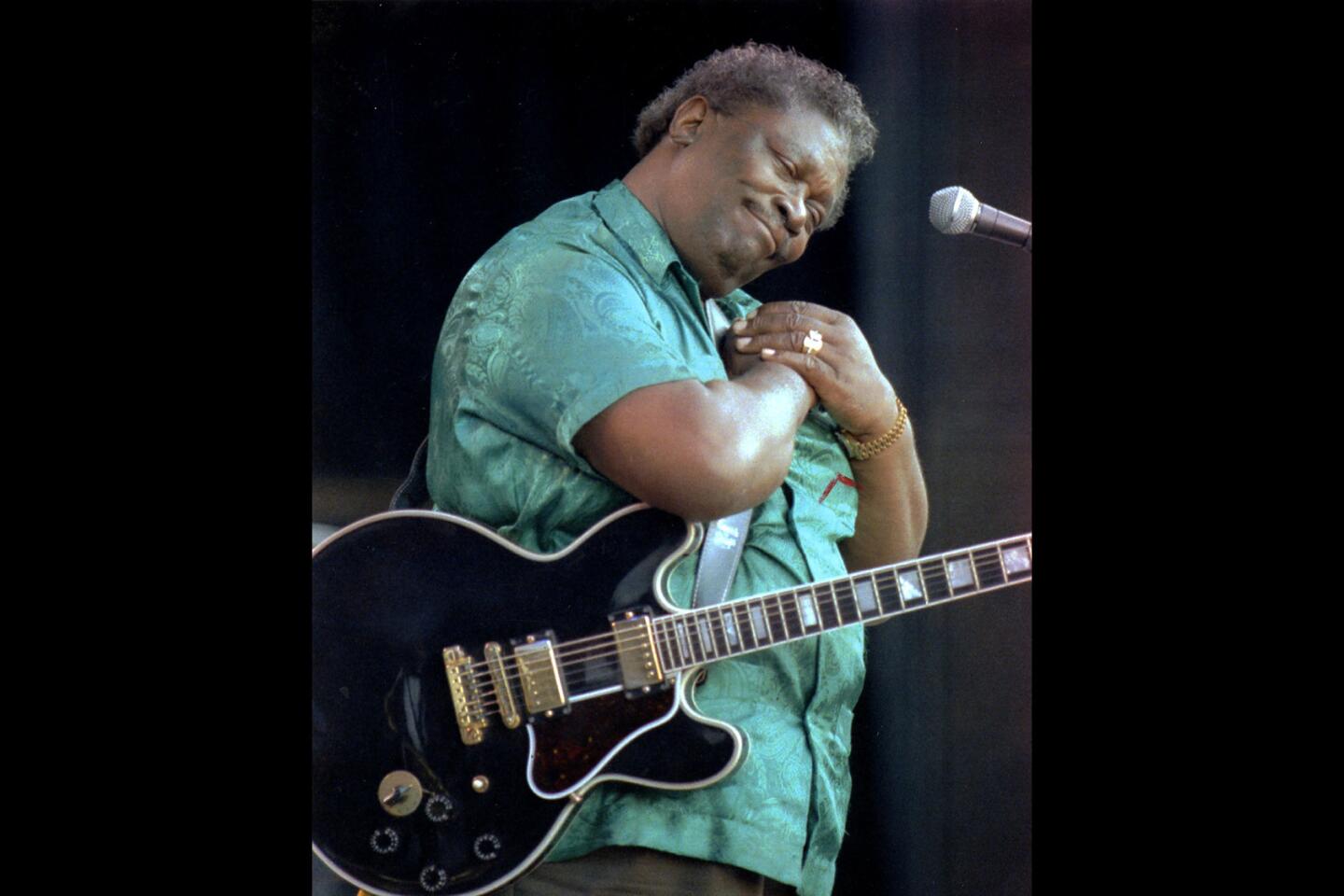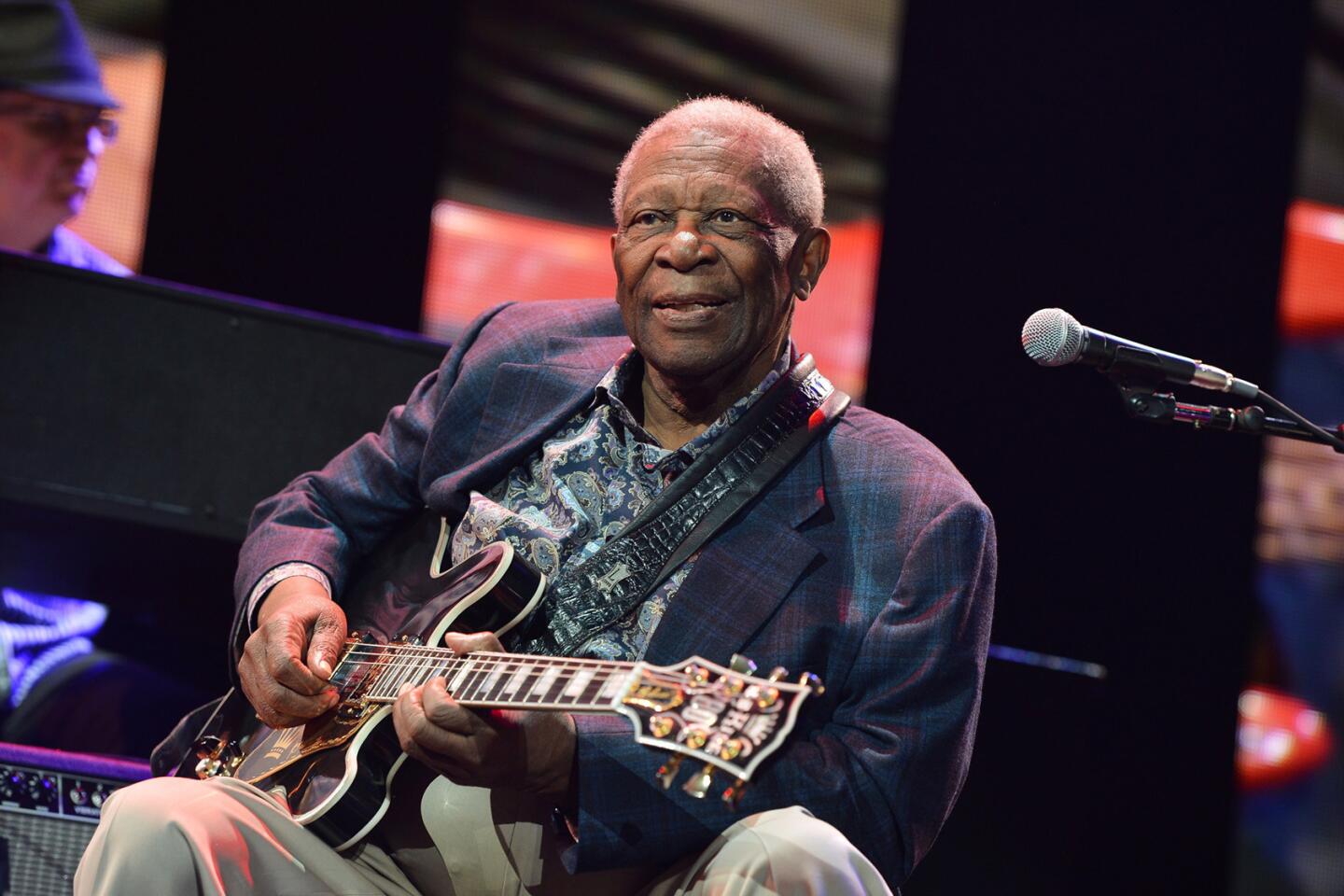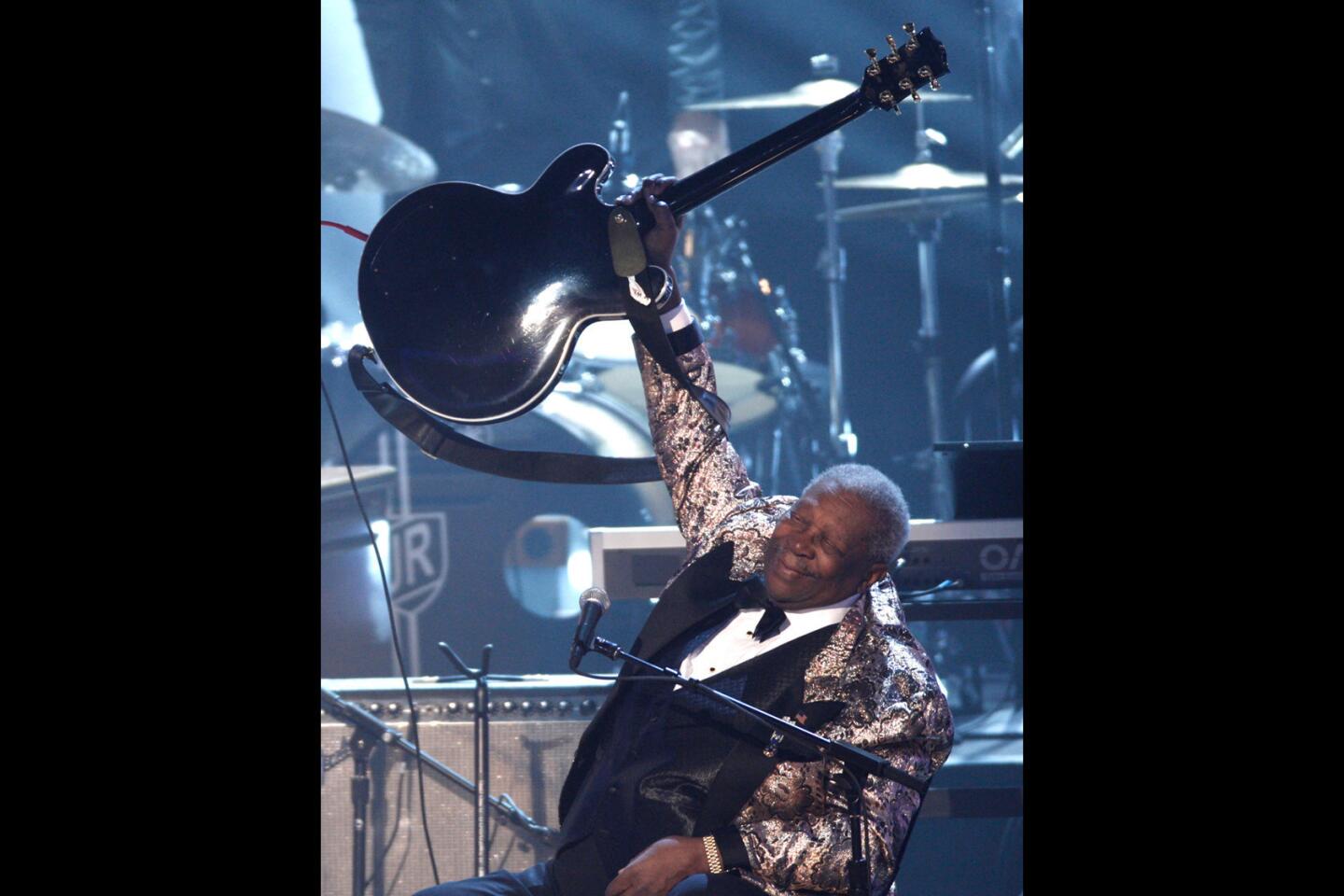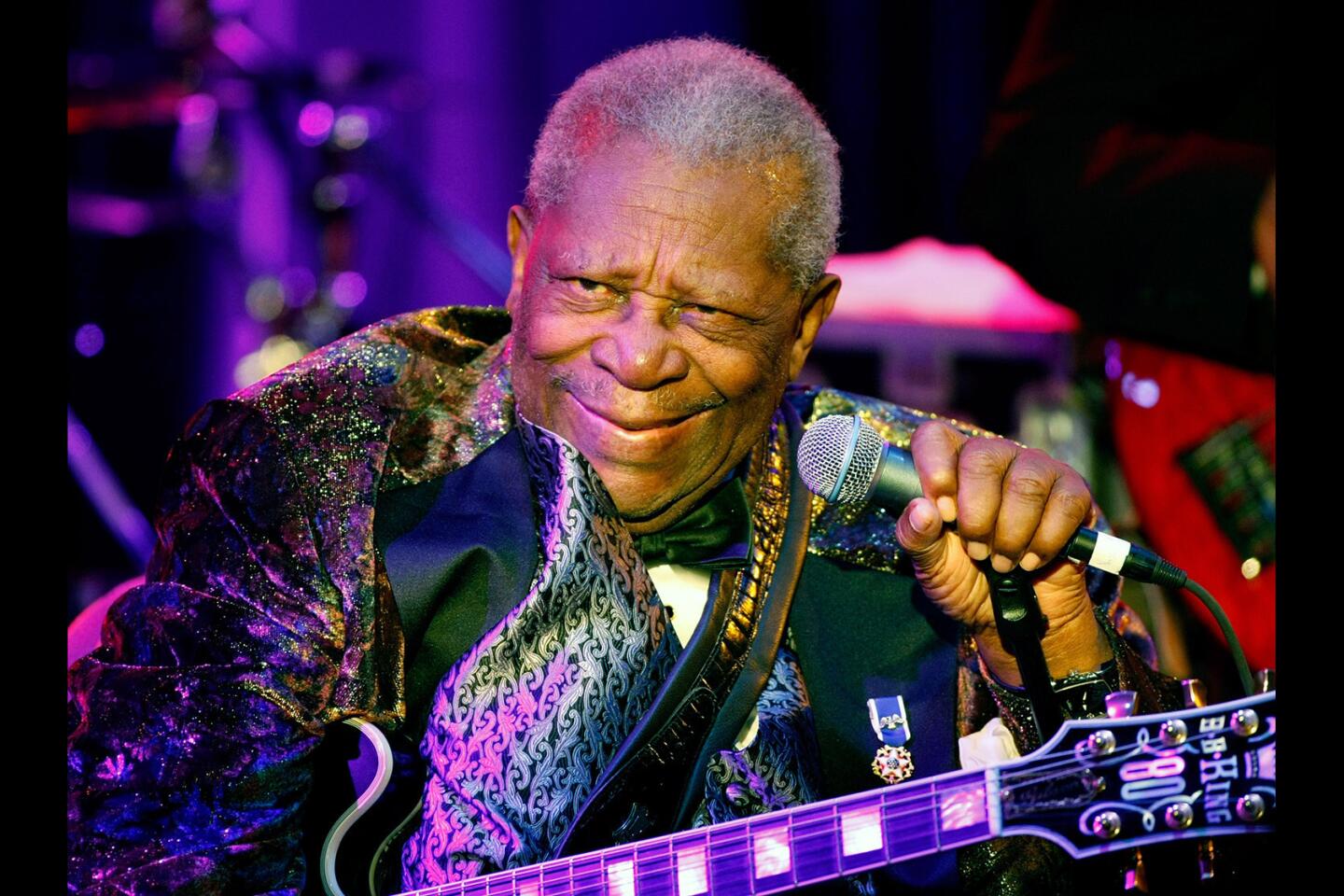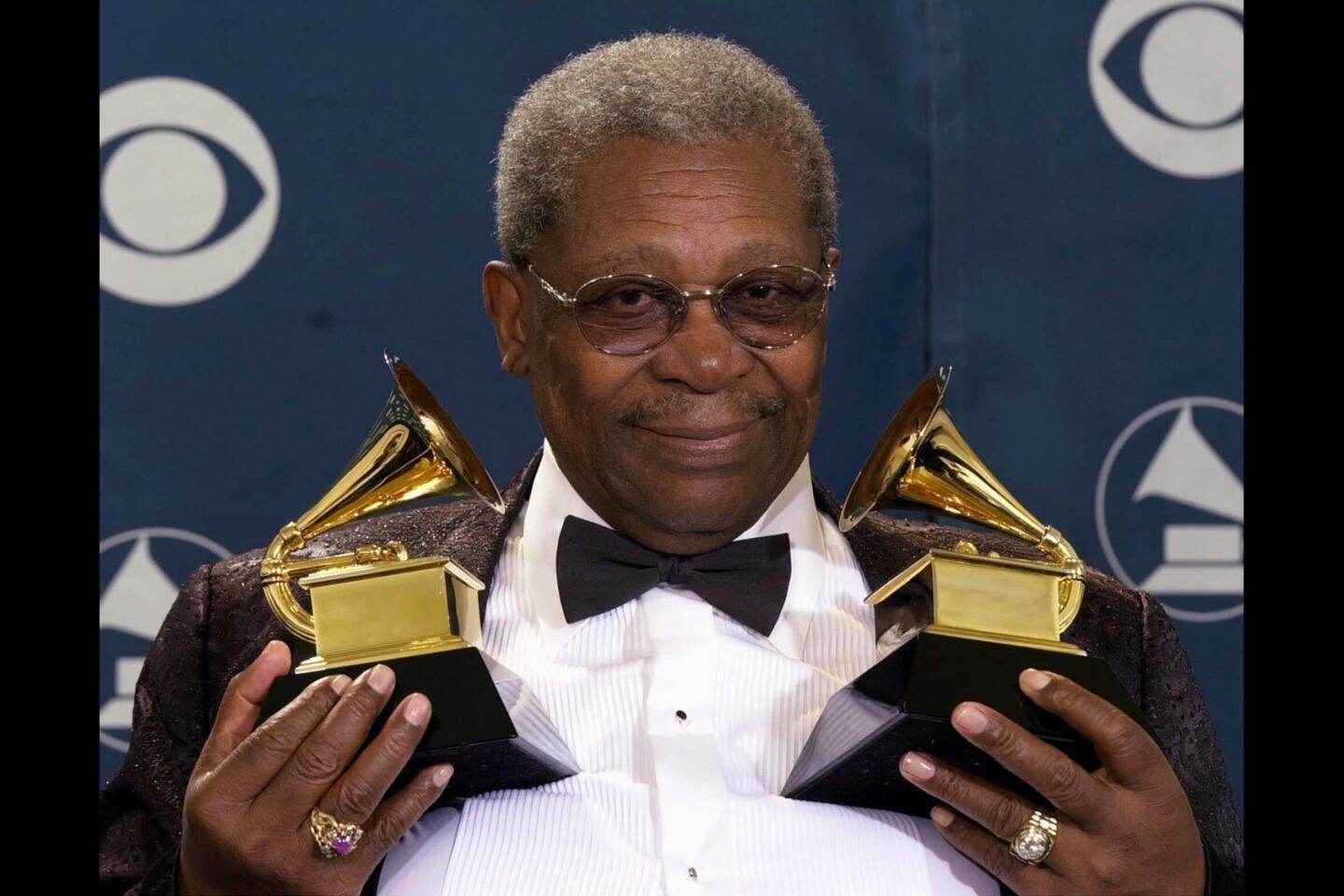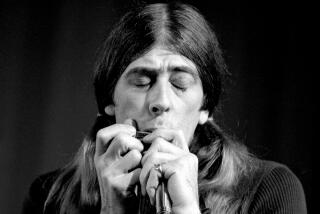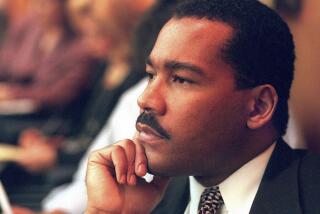Blues guitarist B.B. King dies at 89
Reporting from Las Vegas — B.B. King, the singer and guitarist who put the blues in a three-piece suit and took the musical genre from the barrooms and back porches of the Mississippi Delta to Carnegie Hall and the world’s toniest concert stages with a signature style emulated by generations of blues and rock musicians, has died. He was 89.
The 15-time Grammy Award winner died in Las Vegas, his attorney said. He had struggled in recent years with diabetes.
Early on, King transcended his musical shortcomings — an inability to play guitar leads while he sang and a failure to master the use of a bottleneck or slide favored by many of his guitar-playing peers — and created a unique style that made him one of the most respected and influential blues musicians ever.
“B.B. King taps into something universal,” Eric Clapton told The Times in 2005. “He can’t be confined to any one genre. That’s why I’ve called him a ‘global musician.’”
King spent decades honing the craft that helped him escape the poverty of the Deep South, where he grew up on a Mississippi plantation as the son of a sharecropper who became a teenage sharecropper himself before singing and playing his way out of the cotton fields.
He was an indefatigable performer who seldom left the concert trail for more than a few days at a time. In 1956 he played 342 shows and even in his later years kept a schedule that would test the endurance of musicians half his age.
He tapped his music and oversized personality in transcending the limitations of a genre that rein in most blues musicians, forging an international identity as a beloved cultural ambassador. King collaborated with hundreds of musicians in most fields of pop music, culminating with his 1989 teaming with U2 on the Irish rock quartet’s single “When Love Comes to Town,” which brought him to the attention of millions of young rock fans when he was in his mid-60s.
Decades earlier, when black audiences largely moved away from listening to the blues in favor of R&B and soul performers such as James Brown and Ray Charles, King’s flagging career was resuscitated when the Rolling Stones, the Animals, Clapton, Van Morrison and other white rockers of the British Invasion started singing the praises of King and other American blues musicians to their young fans.
That put King in front of an entirely new audience, and after he put out his version of the Lowell Fulson song “The Thrill Is Gone” in 1969, King went to the upper reaches of the national sales charts and in 1971 collected the first of a string of Grammy awards.
He recorded more than 50 albums — King said he lost count long ago — and was inducted into the Rock and Roll Hall of Fame in 1987. He collected a lifetime achievement award from the National Academy of Recording Arts and Sciences in 1988, the Presidential Medal of Freedom in 1990 and a National Heritage Fellowship from the National Endowment for the Arts in 1991.
ALSO:
Tributes pour in for B.B. King
The B.B. Box’s influence on guitarists
The story behind B.B. King’s beloved Lucille
Five tracks to hear beyond ‘The Thrill Is Gone’
B.B. King on dying: ‘I pray to God it’ll happen one of three ways’
More to Read
Start your day right
Sign up for Essential California for the L.A. Times biggest news, features and recommendations in your inbox six days a week.
You may occasionally receive promotional content from the Los Angeles Times.
